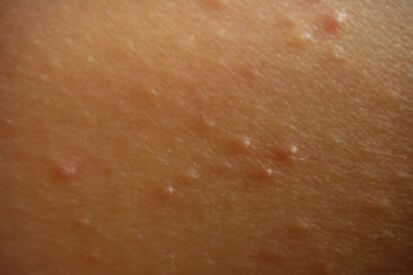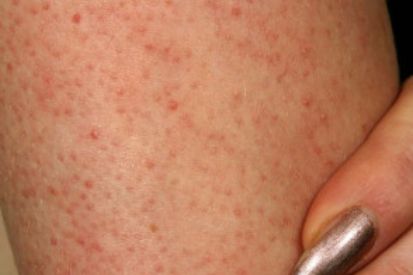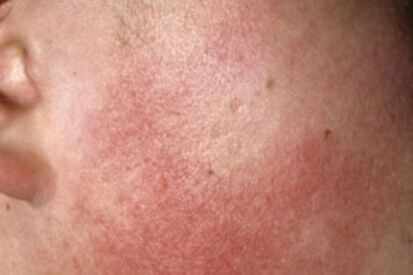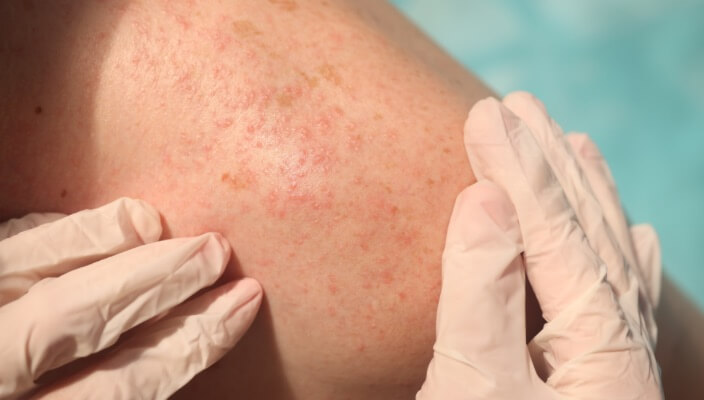Karatosis Pilaris
Keratosis Pilaris, commonly known as "chicken skin," is a widespread, harmless, hereditary skin condition characterized by small, rough bumps on the upper arms, thighs, buttocks, and cheeks. This condition can affect individuals of any age, and since it is hereditary, there is no method of prevention. While some cases may resolve over time, others can be chronic and persistent. Although Keratosis Pilaris is not harmful, it can be challenging to treat effectively.
Despite not being medically concerning, Keratosis Pilaris can cause dryness and itching, impacting your self-confidence. At Pinnacle Dermatology, your skin health is our top priority. If you are struggling with Keratosis Pilaris, schedule an appointment with a trusted Pinnacle Dermatology provider for a personalized treatment plan tailored to your skin's needs. Start your journey to healthier skin today!
Visit our website to learn more and book your consultation.
Examples of Keratosis pilaris




What are the Symptoms of Karatosis Pilaris?
- Small, hard bumps resembling goosebumps or acne.
- Rough, dry, or scaly skin texture.
- Commonly found on the upper arms, thighs, cheeks, or buttocks.
- Occasionally accompanied by redness or inflammation.
- Often worsens in cold or dry conditions.
- Typically non-itchy but can be bothersome for cosmetic reasons.
- Symptoms may improve with age.
Casues of Karatosis Pilaris?
- The buildup of keratin, a protein that protects the skin from infections and other harmful elements.
- Hair follicles becoming clogged with keratin.
- Genetic predisposition, often running in families.
- Dry skin, especially in cold or dry climates.
- More common in individuals with certain skin conditions like eczema.
- Hormonal changes, such as during puberty or pregnancy, can exacerbate symptoms.
How to Prevent Karatosis Pilaris
While there is no definitive way to prevent keratosis pilaris, certain measures can help minimize its symptoms and improve the appearance of the skin. Here are some preventive strategies:
- Regular Moisturization
- Gentle Cleansing
- Avoiding Hot Water
- Exfoliation
- Topical Retinoids
- Avoiding Tight Clothing
- Humidification
- Dietary Considerations
- Sun Protection
Keratosis Pilaris FAQs
No, keratosis pilaris is not contagious. It is a genetic skin condition that often runs in families. While it may be more common in individuals with dry skin, it is not caused by an infection and cannot be spread to others through contact.
Keratosis pilaris is generally not painful but may cause mild itching. Scratching the bumps can lead to irritation and worsen the condition. Dermatologists can recommend moisturizers and gentle exfoliation to alleviate itching.
For some individuals, keratosis pilaris may improve with age. However, it can persist into adulthood. Dermatologists can provide guidance on managing symptoms throughout different life stages.
While there is no cure for keratosis pilaris, effective management can help control symptoms and improve the appearance of the skin. Consistent use of recommended skincare routines and treatments can minimize the visibility of bumps.
How to Treat Karatosis Pilaris
Treatment options for keratosis pilaris often involve addressing the underlying causes of the condition and managing its symptoms. Some common prescription options include:
- Medicated Creams or Lotions with 12 Percent Ammonium Lactate: These formulations aim to soften the affected skin, helping to reduce the prominence of the bumps and improving overall skin texture.
- Moisturizers with Urea: Urea-containing moisturizers are used to hydrate the skin and assist in loosening and removing dead skin cells. This can contribute to a smoother appearance of the affected areas.
- Topical Corticosteroids: Topical corticosteroids may be prescribed for short-term and temporary relief of symptoms, such as itchiness and inflammation. These medications help to reduce redness and discomfort associated with keratosis pilaris.
- Topical Retinoids: Topical retinoids, derived from vitamin A, work by increasing cell turnover. By promoting the shedding of dead skin cells, they help prevent the plugging of hair follicles, reducing the formation of bumps. It's important to note that these medications may cause skin sensitivity and should be used under the guidance of a healthcare professional.
As with any skin condition, individual responses to treatments may vary, and a dermatologist can provide personalized advice and monitor progress over time. Schedule with one of our providers today.
Featured Blogs

- Sun Safety
- Skin Care
- Cosmetic Treatments
Are age spots a natural part of aging? Though many of us in our 20s and 30s would like to think so, the reality is age spots (a.k.a liver spots) don’t just mean you’re getting older: they’re also a sign that your skin is getting too much sun exposure.
Read More
- General Dermatology
- Skin Exams
- Chronic Skin Conditions
Explore our comprehensive guide to gain insights into accurate diagnosis and expert care for chronic skin conditions.
Read More
- Skin Cancer
- Skin Exams
- Sun Safety
Discover the truth about UV radiation and sunscreen as we debunk common myths, empowering you to make informed choices for your skin's health and well-being.
Read MoreFeatured Products for Karatosis Pilaris

EltaMD Moisture Seal
EltaMD® Moisture Seal melts on contact and locks in moisture for up to 24 hours. It spreads easily, forming a protective layer over the skin. This intense occlusive moisturizer helps soothe dry, flaky, intact skin after procedures. This waterless, preservative-free formulation is designed for delicate skin resulting from cosmetic or medical treatments. 2.8 fl oz

EltaMD Moisture-Rich Body Cream
EltaMD Moisture-Rich Body Crème infuses compromised and dry, flaky, sensitive skin with long-lasting moisture and essential nutrients. It is the ideal daily moisturizer to help achieve and maintain softer, smoother, healthy-looking skin. 8 oz / 226 g


